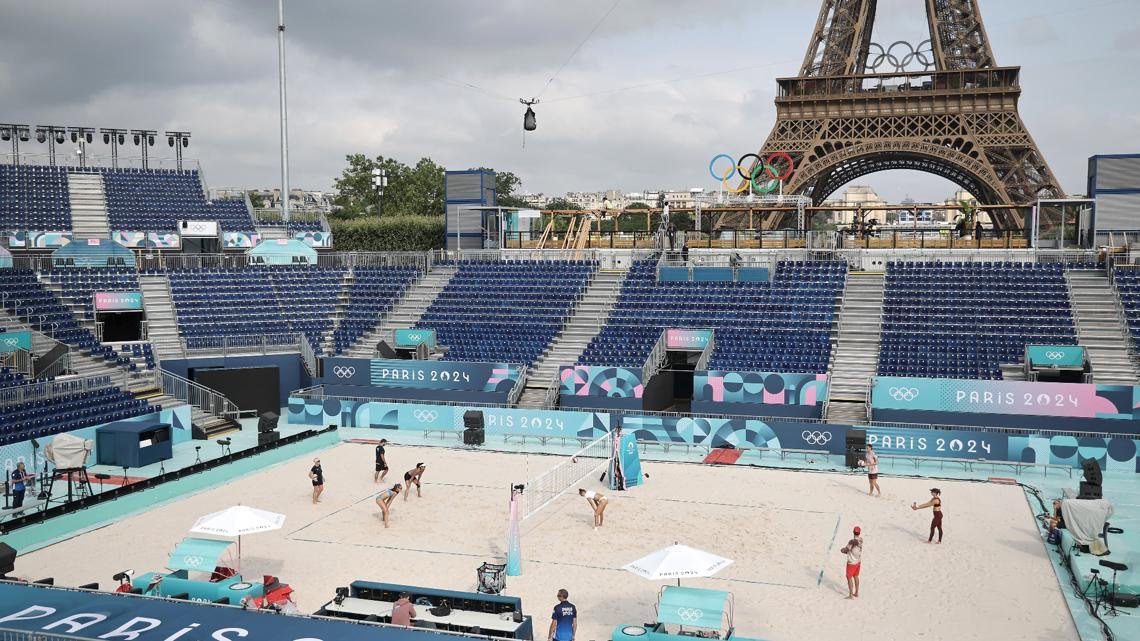Business
Paris Set to Redefine the Olympics: Inside France’s Unique Preparations

The most audacious Olympic opening ceremony ever will kick off 16 days of competition in the heart of the French capital.
PARIS, France — A city synonymous with dreamers, Paris prepares to host its first Olympic Games in a century, commencing this Friday with a groundbreaking opening ceremony on the River Seine.
Touted as one of the most elaborate Olympian inaugurals ever, the event will feature countless athletes and performances on a grand scale, embodying the innovative spirit that enticed the International Olympic Committee to settle on Paris.
Following subdued, pandemic-hampered Tokyo and Beijing Olympics, Paris aims for a bold celebration. Combining sports with fashion, gastronomy, and culture, the city hopes to reinvigorate global love for the Olympics.
Choosing Paris in 2017 was a move to capitalize on innovation and rekindle Olympic passion, particularly among younger audiences.
However, the city faces significant challenges. Past extremist attacks necessitate extensive security measures to protect athletes and visitors. Ongoing wars in Ukraine and Gaza complicate the situation further, with elite French forces involved in safeguarding delegations.
If successful, Paris could mark a transformative moment in Olympic history.
These Games nearly achieve gender parity, and aim to align with post-#MeToo values. Paris also plans to lower its carbon footprint with more sustainable and temporary venues.
The city’s iconic monuments will serve as unique backdrops for various events, promising viral moments on social media. Crowds will return in full force following the pandemic’s impact on previous games.
Led by award-winning theater director Thomas Jolly, the opening ceremony will transform central Paris into an open-air stage, with the Eiffel Tower prominently featured.
Hundreds of thousands of spectators are expected along the Seine, where athletes will be paraded on boats. Security measures include a 150-kilometer no-fly zone and extensive aerial surveillance.
Celebrating Paris could be cathartic for a city still healing from the 2015 extremist attacks. The lighting of the Olympic cauldron could involve figures ranging from sports icons to attack survivors.
Untraditional choices, such as the opening ceremony’s location and temporary sports venues throughout the city, add complexity to security plans. Concerns about AI-equipped surveillance have been raised.
The Olympic reach extends even to Tahiti, hosting surfing competitions on its famous waves.
Over 55,000 police, gendarmes, and soldiers are deployed to secure the events. Medals feature iron from the Eiffel Tower, a nod to Paris’s architectural legacy.
Preparations for the ceremony include extensive fencing, creating movement challenges for residents and visitors. Business owners within secured zones are concerned about the impact on customer flow.
Cost-saving measures and reduced construction aim to make these Games more eco-friendly, projecting a carbon footprint lower than previous Olympics. A new aquatics center in Seine Saint-Denis aims to benefit local communities.
Organizers believe the Games will leave a lasting positive impact on Paris. Clean-up efforts for the Seine accelerated by the Olympics will reopen the river for public swimming next year, a potential legacy win.
With expenses estimated at around 9 billion euros ($9.7 billion), Paris’s costs remain lower than recent games in Tokyo, Rio, and London.
As the opening ceremony’s fireworks fade, Paris will transform into the stage for Olympians. Notable athletes like Simon Biles and Victor Wembanyama will capture global attention. Issues of conflict and resilience will be highlighted by Ukrainian and Palestinian participants.
In the end, some will achieve their dreams while others fall short. Yet, they will all share the Parisian experience.


















